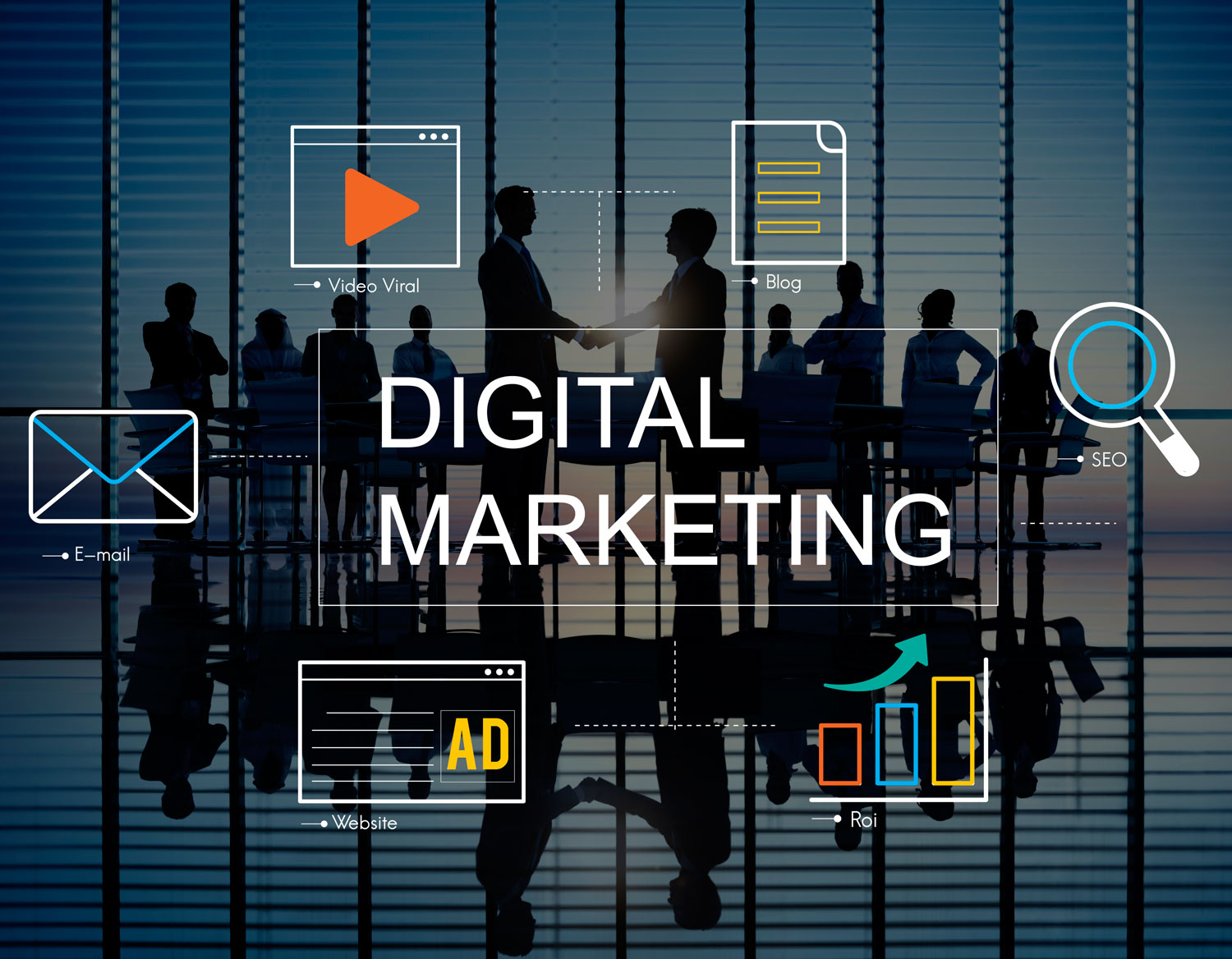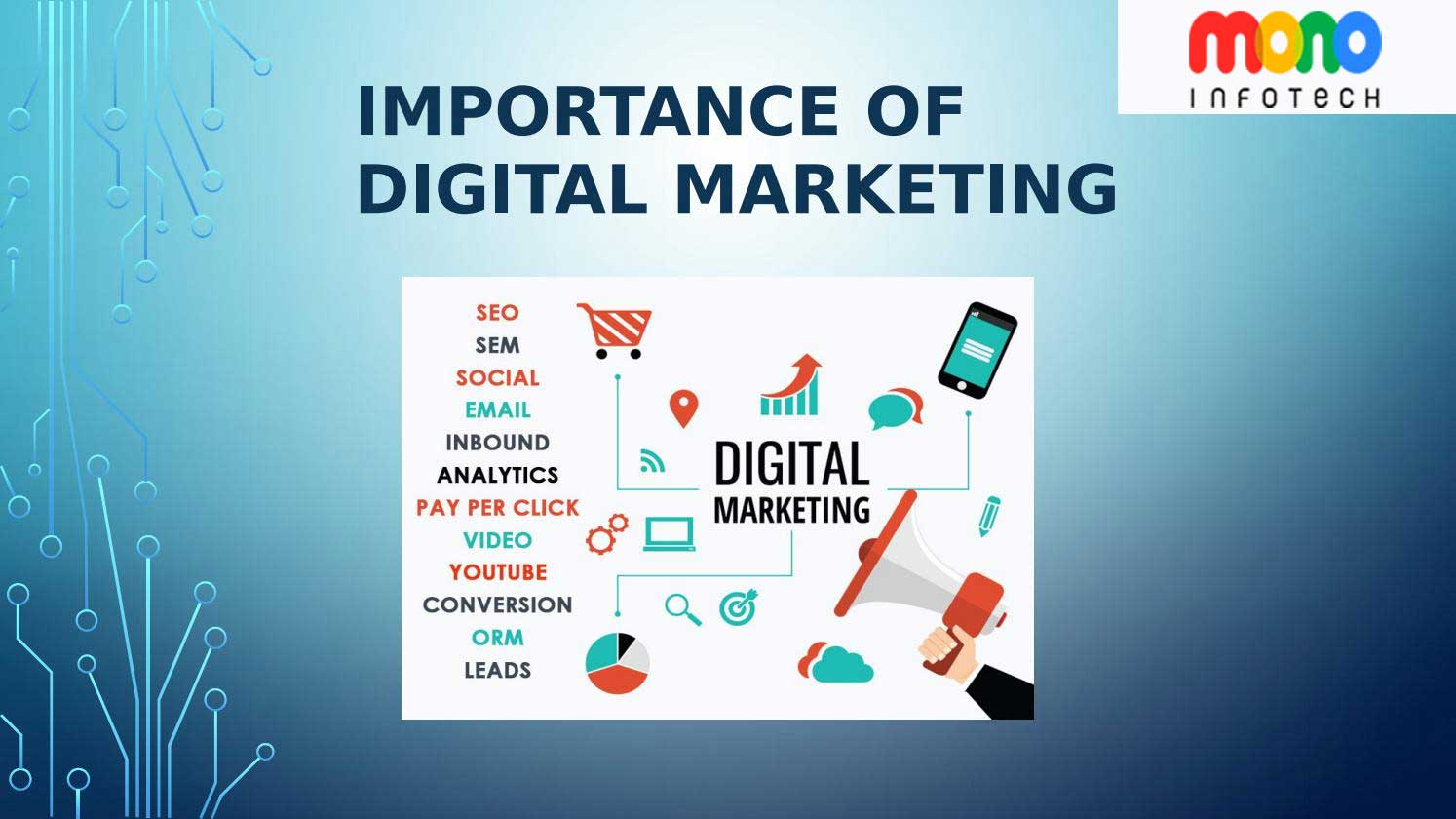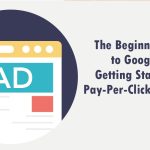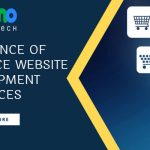It’s 2023, and the concept of door-to-door marketing or any other form of traditional marketing has no place in any business. But, as everything is digitalized, including marketing, you might think, “what is digital marketing.” So take your time; you will get all the information related to digital marketing in this article. So read till the end, and you will get answers to all your curiosities related to the topic.
What is digital marketing?
Traditional marketing is similar to digital marketing. However, in reality, companies use digital marketing strategies and conventional methods for the best outcome of their efforts. Digital marketing is brand promotion via the internet and other digital communication channels.
Online marketing is also popularly known as online marketing. There are multiple different types of digital marketing. Among them, some famous examples are all affiliate marketing, SEO (search engine optimization), PPC advertising, content marketing, etc.
A company’s use of electronic technology to engage with customers comes under digital marketing. Digital marketing includes multiple forms of platforms like social media platforms. For advertisement, there are web-based marketing channels involved. It also includes multimedia messages and emails.
Digital marketing gained popularity in the 1990s when the internet gained worldwide popularity. Hence, gaining the attention of like-minded people/your target audience has become easy. Audience interaction has become easy, which helps to develop brand awareness.
Why is digital marketing important?
If your business is lacking behind in the market, you should invest some money in marketing. Then digital marketing could be your best shot; there are multiple strategies and tactics that one can follow. Numerous marketing forms include SMS texts and social media platforms. The best part about digital marketing is it’s budget-friendly and cost-effective due to the low upfront costs.
Digital marketing aids in expanding the audience that businesses/brands may reach, which conventional marketing techniques might not be able to do. The objective is to focus on the customers who are most likely to purchase your good or service.
It also allows you to gauge progress and enable you to make adjustments per your needs. Hence it is frequently more affordable than traditional advertising.
B2b Versus B2c Digital Marketing
Digital marketing techniques can benefit both business-to-consumer (B2C) and business-to-business (B2B) forms of business. But, when it comes to marketing, they both significantly differ from one another. Read about the workings of digital marketing in B2C and B2B in this area.
- A company uses digital marketing for business-to-business (B2B) to identify another company that will buy its goods or services. It is accomplished by focusing on online lead creation. Whereas business-to-consumer (B2C) digital marketing aims to draw people in and convert them into clients. Customers’ expedited buyer journeys are another focus of B2C digital marketing.
- Longer decision-making processes are frequently a result of B2B clients, which leads to longer sales funnels, in contrast to B2C customers, who are more inclined to choose immediate offers and messages. These clients respond better to relationship-building strategies.
- Expert B2B digital marketers provide the logic and support that B2B transactions are often built on. Content for business-to-consumer (B2C) audiences is more likely to be emotionally charged. It might gear customers toward enhancing the buyer’s experience.
- A B2C business that sells expensive goods like computers or cars may provide more serious and educational material. It means whether you’re a B2B or B2C company. Your digital marketing approach must always be focused on your clientele.
Look at your current audience to develop knowledgeable and focused online marketing strategies. By doing this, you can guarantee that your marketing campaigns are successful also that you can draw in potential clients.
Inbound Marketing vs. Digital Marketing
Online customer attraction, engagement, and delight are achieved through inbound marketing. Conversely, online marketing is just a capture word for all forms of internet marketing techniques, whether they fall under the inbound or outbound marketing category.
Since it doesn’t distinguish between “outbound” and “inbound” techniques. Digital marketing is sometimes compared to lead generation. Rather than being a specific approach, it serves as a catch-all phrase for any form of marketing that uses digital communication. The following are some examples of inbound marketing content and strategies:
- Infographics
- Photos
- Videos
- Search engine optimization or SEO
- Blog posts
- E-newsletters
- Webinars
- Social media marketing
Digital outbound methods try to spread a marketing message to as many internet users as possible. Regardless of how hospitable or essential it may be. The garish banner ads you see on websites that push a product or campaign on people who aren’t ready to receive it serve as an example.
Marketers utilize digital inbound marketing methods to entice their target audience by providing them with helpful materials. Since it enables your website to capitalize on your potential customers’ search terms, a blog is one of the most fundamental yet powerful inbound digital marketing tactics.
How Digital Marketing Works?
Learning and doing digital marketing is relatively easy. However, your goal should be clear if you put your efforts and time into virtual marketing. It might include a plan to increase brand awareness, brand value leads generation, sales numbers, etc.
Once you have a set goal through digital marketing, choose a proper marketing channel accordingly. For instance, when a brand wants to increase its sales, they decide to run paid campaigns. These ads get to run on platforms like Google and Facebook.
After completing this stage, you must now establish a budget. How big and far away your target audience will determine all this. Gather all the data that will be used to determine the cost and the availability of resources. All of this is a component of a digital marketing effort.
Types of Digital Marketing
So far, you have understood the definition of digital marketing, why it is essential, and how it works. Under this section of the article, read about different types of digital marketing.
1. Search engine optimization
SEO which expands to “Search Engine Optimization.” This form of digital marketing is used to increase traffic on the website.
Using this, your website can generate organic traffic, which helps it optimize itself. It increases the ranking of the following website in the search engine, which is the whole purpose of SEO. Mediums like blogs, websites, infographics, etc., benefit from SEO.
If you want to generate quality traffic on your website, then there are several in SEO to achieve it:
On-Page SEO: The primary focus of on-page SEO is the material posted on the website. Including keywords in the content text is part of this. It increases search volume, which raises your SERP ranking (search engine results pages).
Off-Page SEO: This kind of SEO concentrates on all of the “off the page” activity that goes on to optimize your website. Off-page SEO includes the formation of backlinks and inbound links. It decides your website ranking and which keywords are ranked on your website.
It helps to evaluate the backlinks that you require to optimize your website. This way, your website will get appropriate SERPs from other publications in the market. It will be in the form of guest posts on their blogs, including a link to your website and stuff.
Technical SEO:
This form of SEO focuses on the causing part of your website. Technical SEO deals with multiple specialized forms of SEO, which include optimizing CSS, compressing images, and structured data. It helps to increase the loading of your website. In addition, it is crucial for ranking factors for search engines like Google.
2. Content marketing
One essential component of digital marketing is content. Content marketing includes two things: production and marketing of content. It is done to increase brand recognition, generate leads, and get more customers and traffic to the website. Therefore the content needs to be brand/business specific.
The secret to effective content marketing is to know your target audience. If you want the following content of your website to rank high. Then your content should be highly SEO optimized. It will lead increase in audience interaction and an increase in brand awareness. Therefore your content should be relevant to your target audience; this helps to build strong relationships throughout the pipeline.
A crucial factor in website optimization is the reliability of the content. Because of this, SEO plays a significant role in marketing, a strategy built on providing target audiences with valuable and relevant information. Content marketing aims to draw leads who could become a customer. Here are some of the following channels/factors of content marketing:
- Newsletters
- Blog posts
- Infographics
- Video or audio transcripts
- E-books
3. Social media marketing
This method advertises the company’s/brand’s name and uploads content on social media platforms. It helps to increase brand recognition, attract customers, enhance lead generation, etc.
Some social media platforms are used by many marketers, which help to develop a viral campaign. A viral marketing technique involves teaming up with a well-known content creator. Or else following trends on social media also helps attract a large audience. The objective is to create something deserving of sharing, hoping it will become viral on social media.
Those businesses that are new to social media need to integrate platforms on social media platforms like Facebook, LinkedIn, etc. This way, generating content for numerous channels and observing statistics happening on the forum will be easy. Here are some of the most popularly used/ engaging social media platforms:
4. Pay-per-click marketing
PPC, also known as pay-per-click marketing, is a type of online advertising in which you are charged a fee each time a user clicks on one of your digital ads. As a result, you only pay for the advertising that people interact with rather than a fixed sum to continuously broadcast targeted ads on internet channels.
PPC models are one of the other forms of digital marketing, which is also frequently used. Since Google is the most widely used search engine, many companies employ Google AdWords for this. When someone searches for a particular term, PPC adverts are positioned at the top of search engine result pages using the abovementioned criteria.
After clicking an ad, viewers are expected to carry out One or so more target actions that are part of any PPC campaign. These actions known as conversions it could be transactional or non-transactional.
A modification could be anything, such as subscribing to a newsletter or calling your home office. With the marketing channels you’ve selected, you can monitor any conversions you decide to make your campaign’s target conversions.
5. Affiliate marketing
Through the use of the digital advertising approach known as affiliate marketing, one individual can profit from the promotion of another person’s company. The process is always the same, regardless of whether you are the promoter or a corporation that works with the promoter.
When someone purchases the product you are promoting, you will receive a commission as the affiliate. And if you are the merchant, you must pay the affiliate for each sale you make, thanks to their efforts.
So the first stage is establishing contact with the additional party, whether you wish to become an affiliate or discover someone. You can create or join a single-retailer program or use online channels designed to connect affiliates and retailers.
You can do numerous things with your store to make your business attractive to prospective promoters if you decide to work directly with affiliates.
Of course, all this requires resources for these affiliates to get successful. However, it also provides ready-made content and marketing resources, which helps to perform exceptionally for better results.
6. Email marketing
To communicate with their audiences, businesses employ email marketing. In addition to directing customers to a company’s website, email is frequently used to advertise events, promotions, and exclusive content. Here are some types of email marketing campaigns that you can try under email marketing:
- People can subscribe to your newsletters for any updates related to your brand/business.
- As a follow-up, emails were sent to website visitors who downloaded anything.
- You can also send welcome emails to your clients.
- Festival promotions for members who have subscribed to your programs.
The benefits of digital marketing
Digital advertising has gained popularity because of its ability to reach such a large audience. Nevertheless, it also has various other benefits that can help your marketing initiatives.
So far, you have read about the multiple following factors of digital marketing, including its type. In this section of the article, read about a few of the advantages of digital marketing:
1. Comprehensive Geographical coverage:
If you place an advertisement online. That means anyone can see it if you have yet to be restricted to any geographical region in your advertising. It makes reaching out to more individuals through various digital channels and extending your business’s market reach straightforward.
2. Efficiency in costs:
Digital marketing is more affordable than traditional advertising and targets a broader audience. The expenses for television commercials, print ads, and other conventional marketing options can be considerable. Additionally, they give businesses more authority concerning whether their target viewers will see those messages.
If your blog is live, you can develop material using digital marketing to attract customers. For example, it is simple to alter the timing or the substance of an email advertising program that’s also set up to send messages to certain client lists regularly.
3. Measurable outcomes:
You need to determine how many customers and how much revenue your marketing approach finally brings in to determine if it is effective. So how would one go about doing that with a conventional marketing plan?
However, not all industries can benefit from that. One-on-one interactions are all that many clients seek in their businesses, which is only possible through surveys as they yield complete information. Evaluating outcomes when using digital marketing is uncomplicated.
Whether that’s newsletter rates, main website views, or direct transactions, digital marketing platforms and tools automatically record the quantity of desired outcomes that you obtain.
4. Personalization:
You can collect client data with digital marketing in a way that isn’t possible with traditional advertisement and its method. Digital information is frequently far more accurate and detailed.
All of this knowledge is currently available to you because of digital marketing. For example, assume you provide financial services and want to reach out to internet users looking at your products with unique offers.
For that, you need to have a fully planned campaign that can assure you some results. Followed by this, your first target should be to convert those who showed some interest in your insurance options. Then the plan should be to proceed with business owners’ retirement plans.
Stronger ties to customers: Digital marketing has made customer interaction easy and effective. Due to digitalization, social media platforms are hyperactive these days, which has made customer interaction easy.
Leaving comments or sharing content over social media is a way to evaluate how well you are doing in this work area. Your service or product gains popularity whenever someone new joins the conversation or gets converted.
Customers should also get some profit out of the interaction. As people take an active role in telling your brand’s story, their degree of involvement rises. As a result, it increases brand loyalty which over time grows stronger.
5. Simple and practical conversions:
With digital marketing, your target audience can respond immediately to your content or advertisement. Traditional marketing could get you some quick calls after the advertisements.
Digital marketing helps get a fast sales funnel, which is possible by clicking links and saving blog content/posts. Your customer may not buy anything even after doing that, but it will give them a chance to interact with them further.
Challenges In Digital Marketing
Digital marketing poses particular challenges to its practitioners. Digital marketers must keep up with these platforms’ continuously expanding number of features. To properly sell their goods or services, you must also understand how to identify and use such internet marketing networks.
Due to the rapid development of the digital world today, it is becoming more difficult to keep consumers’ attention since they are inundated with competing advertisements. Therefore, analyzing such a massive volume of data for digital marketers can be challenging. However, these data could be used to develop new marketing strategies.
In digital marketing, the challenge of effectively gathering and exploiting data highlights the necessity for a marketing strategy built on a deep understanding of consumer behavior.
For instance, a business can need to do new consumer behavior analysis, like website visualizations, to understand the client journey. Here are some following challenges of digital marketing-
- Time consumption: It takes time for businesses to develop content and refine their marketing initiatives continuously.
- Competitive: This can happen when potential buyers are bombarded with too many competing advertisements. Making a brand stand out can be difficult for marketers.
- Data privacy: An organization needs to know how to manage personal data. It will adhere to data privacy rules if it targets individuals with advertisements.
Essential Digital Marketing Strategies
Many small businesses and new entrepreneurs find it difficult to start with digital marketing. We are listing some of the points below which could be helpful if you want to develop a successful digital marketing strategy. These points can help you with brand visibility, sales, engagement, etc. So read the below-mentioned points carefully:
1. Establish SMART objectives:
Any marketing plan must start with SMART goals. Those that are precise, measurable, realistic, pertinent, and timely. Whatever your many goals, focus on the ones that will help your strategy move forward rather than hinder it.
2. Choose your audience:
Before initiating any marketing initiatives, it’s imperative to identify your target audience. Your campaign’s intended audience is the group of people who share specific qualities, like as age, gender, demography, or buying preferences.
By clearly grasping your target audience, you can decide which digital marketing channels to use and what content to include in your campaigns.
3. Set up a budget:
With a budget, you can be sure that your money is being used wisely towards your goals rather than being lost on digital marketing strategies. That might produce a different result. While making keep your budget on the top of your head. Consider your SMART objectives as well as the digital medium you plan to use.
4. Decide which digital marketing channels to use:
You can benefit from a variety of digital marketing platforms, including content marketing, PPC ads, and more. The digital marketing platforms you select will typically depend on your goals, target audience, and budget.
5. Improve your marketing initiatives:
Once the campaign is over, review all the data you have collected so far. Select the effective ones and keep others for future purposes. This way, you can give yourself some further improvement points.
This way you will be able to organize even better campaigns in the future for more progress. Also, get all your data on an accessible dashboard. It is easy to get with the help of digital technologies, and many tools/software are in the market these days.
Conclusion
Digital marketing is easy to learn and practice if you are passionate about this field. Also, you must have an excellent team to run the best social media campaign for your brand. After reading the following article, you will know what you need to start successful digital marketing. If you are hiring any digital marketing agency to do all the work then make sure they are the best at their work. And if you are hiring an individual and building a team to work on all of it. Then also be careful; in the end, it’s your money and brand.
FAQs
What role does digital marketing play in the current environment?
Digital marketing possesses much power in the era of the internet and digitalization, which we can not ignore. If you compare it to the traditional marketing method, you will see that digital marketing concentrates on a worldwide audience, giving businesses and customers greater exposure. It is conversion-led and straightforward to observe.
What role does digital marketing play in the travel and tourist sector?
The tourism business has greatly benefited from the digital marketing era of today. It can assist organizations in understanding consumer behavior, simplifying customer interactions, and enhancing their product offers. In addition, with numerous digital ads, marketing campaigns may be more precisely targeted while also assisting in identifying their target market.
What is the importance of digital marketing strategies?
Starting your journey in digital marketing without having any solid strategy could be harmful to you and your business. Businesses hire digital marketing executives to help them build a strategy per their goals.
Then, moving on to the right path to success becomes easy. And it requires establishing particular marketing objectives. These multiple factors and improved client loyalty are one of them. Through increased brand identification, increased website clicks, and an increase in overall conversions, it increases also.








